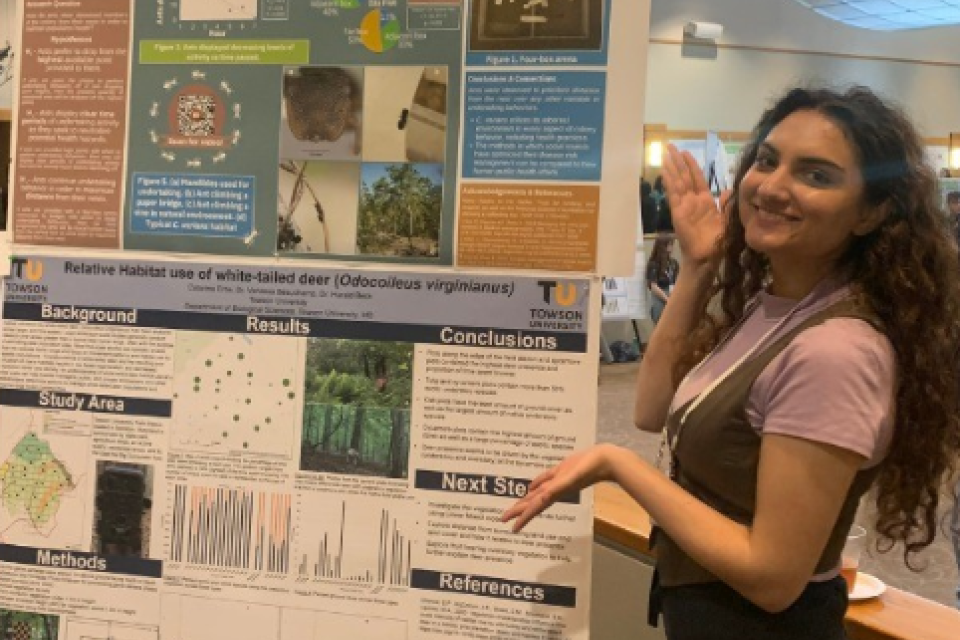Parisa Tabiatnejad, WLP SHM Alum, narrates her exciting experience at the WLP’s Course based Undergraduate Research Experience (CUREs), created by Dr. Carly Jordan in 2020 with a RAPID grant of $1M from the National Science Foundation, where Tabianejad and Dr. Jordan traveled to Delaware to present her findings on Ant Colony Behavior:
"This past spring, I had the privilege of participating in the Ecological Society of America’s Mid-Atlantic Meeting, which took place at the University of Delaware. The trip was supported by the Humphries Scholarship through the WLP, an honor that I didn’t take lightly. This was my first time at a professional conference, and the support I felt from the award helped to ease some of my nerves and allowed me to focus on making the most of this opportunity.
At first, I was deeply intimidated by the idea of presenting my research in front of so many experts. The morning of the conference, I tried my best to look professional and ran through my talking points one last time in my head. When I got to the meeting hall, it was swarming with students and faculty alike, setting up their posters with titles way more complicated than mine. Nonetheless, I was determined to be confident and take my place among all these academics. And to my surprise, as the day began and I went about mingling with everyone, many of them were just as nervous as I was. When we all realized we shared some common ground, it was like all the ice broke. We told each other about our research, and it was so inspiring to hear how passionate they all were about their subjects of interest. I felt so immediately at home, which is a feeling I never thought I would have at an academic conference. This feeling was driven deeper when I got to listen to some of the talks given by the undergraduate and graduate students. I was deeply invested in stories of pollution and environmental science, and many of the talks opened my eyes to some fascinating perspectives in urban ecology, a subject that impacts all of us here at GW. It was driven even further still when I finally did present my work, and was met with nothing but genuine interest by the professional ecologists that came to watch. They didn’t ask me the trick questions that I was so afraid of, but rather asked me questions about what I wanted to do in the future and how I came to get involved in ecology work. They were nothing but encouraging, a far off reality from the judgment that I had so imagined.
When I got back to that hotel room that night, I was happy to have found a comfortable environment in a scientific setting. It reaffirmed for me that I was excited about my career path, and more than ready for whatever comes next. The experience I had at the ESA Meeting is still something I consider to be invaluable, and it wouldn’t have been possible without the encouragement I had from the WLP and from Dr. Jordan who accompanied me. I am profoundly grateful, and the confidence I gained will be carried on to all the rest of my academic endeavors."


